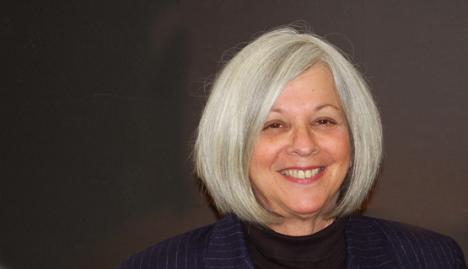It’s the kind of story you’d see in a Walt Disney movie: a fluffy, black 15-pound dog survives Hurricane Katrina in New Orleans, and after a ride in a pirogue, in a battered pickup and in a private twin-engine plane, he travels from the Alexander family’s care to a new home thousands of miles away – on Alexander Lane.
Our cockapoo Casey Jones had a Loyola student as his regular sitter during our travels, but for longer trips he boarded at a nearby vet. Whenever we’d pick him up, Casey would act happy to see us, but we knew he was faking it. After all, at the vet’s he had other dogs to bark at, he was played with twice a day and his accommodations, unlike our backyard home for him, were air-conditioned.
So when we left him on Aug. 27 when we evacuated, we left a happy dog. A few days later, when we couldn’t reach the vet, we entered Casey’s name on various online pet rescue sites, but daily checking revealed that no rescuers had been allowed inside the city itself, and we feared the worst.
And when we sneaked back into town on Sept. 16, we were devastated. After passing 10 armed checkpoints, we reached the vet’s. It had flooded. Those horrible numbers painted in orange told the story: date and number of live/dead humans: 9/6/05, 0/0. As we pounded futilely on the vet’s doors, our loss became emblematic of the wasteland New Orleans had become – the stench, the rot, the eerie empty silence of half a million people not at home.
Then, in mid-November, the cell phone rang and a caller from California asked whether we had owned a dog named Casey Jones – she said he was still alive. He was living with a foster family in Aspen. In fact, he was now a ski-bum named Joe Cocker, nicknamed Jo Jo.
It seems someone had sneaked into town around Sept. 5 and rescued all the animals at the vet’s and rowed them out to the parish line, then drove them to the Lamar-Dixon pet rescue center in Gonzalez, La.
Some folks flew in via their private twin-engine plane and gathered up nine dogs and flew them to Aspen. A couple, who had lost their beloved pet of 15 years, picked out Casey Jones to live with them. He sleeps in their bed, he runs down a mountain trail every morning, he accompanies them to the gym or to work, the whole family hikes up mountains at lunchtime. He has been on several ski trips.
We sent them Casey’s puppy pictures; they sent us a recent snapshot along with the adoption papers to sign – because although we love our dog, there’s no way we would put him through a reverse trauma sometime in the uncertain future. And although questions remain (Why would anyone assume a dog, boarding at a vet’s, was homeless? Why was no effort made to check the net listings for missing dogs before the animals were flown out of the state?), we are happy our pet was rescued and has a new home.
Now, this little shaggy dog story doesn’t mean much. New Orleans is still a sad shadow of its former sleazy glory. All of our lives are unsettled, with an estimated 75 percent of us still displaced more than four months later. There are around half a million of us at least this bad off, many of us worse: memories of drowned loved ones, thousands of us living someplace the government sent us (Utah) without means to return home – and no place to live when we’d get there.
But there’s always a moral somewhere in a tale with a happy ending. We can hope instead of assuming the nightmares will never cease, re-living those dreadful days when the levees gave way and the center didn’t hold, those horrific images of the souls floating in the flood-ravaged streets, those terrifying TV live shots of tiny kids alone in the hanging baskets of the rescue helicopters, and the heart-thumping fear the baskets would tip over and the children would be swallowed by the black water below. If Casey Jones can find a new life, maybe we may someday be able to get through an entire 24 hours post-traumatic-stress free, able to picture better times ahead: dancing in the streets to “Mardi Gras Mambo,” watching the tourists graze at Jazz Fest, imagining a future for those little babies who did not tump out after all, but kept slowly rising up, heavenward in the swaying baskets, into the cloudless, blue sky.
S.L. Alexander, Ph.D., is a journalist and associate professor in the communications department.








